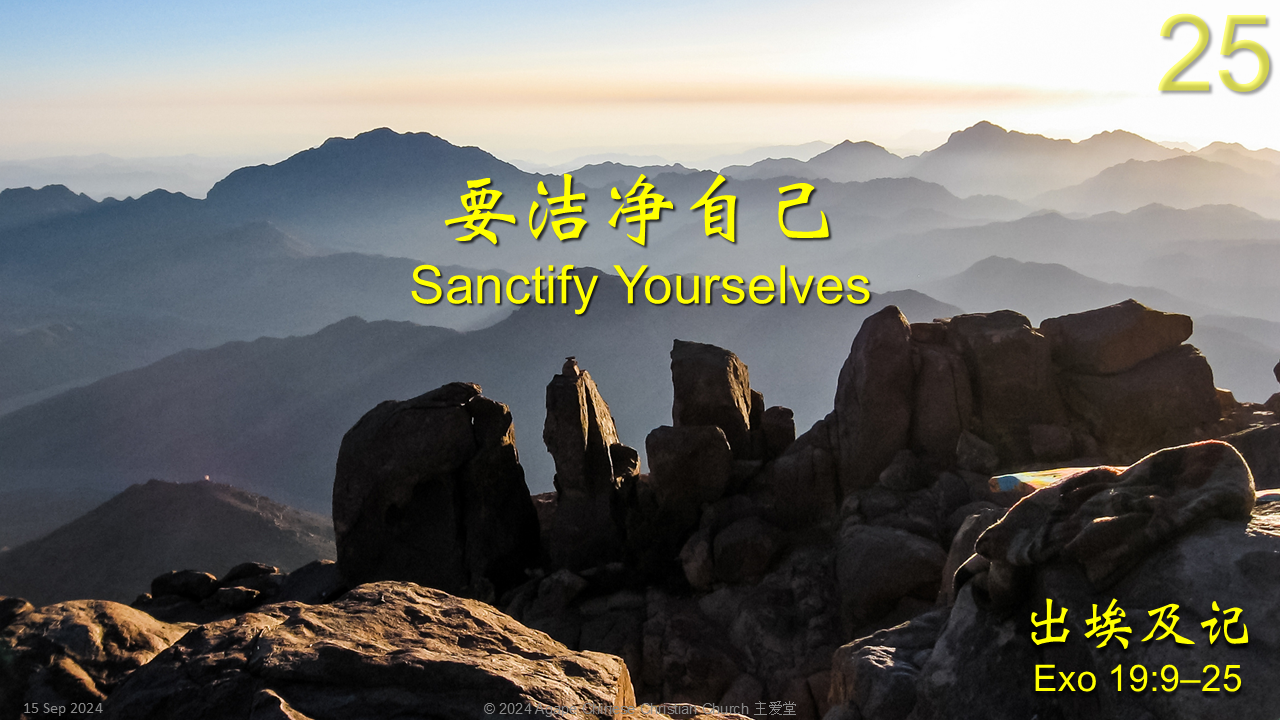要洁净自己 Sanctify Yourselves
出埃及记 Exo 19:9–25
Remember these points
I put these points at the top of my sermon-prep template to remind myself every week:
- Show that main point of passage relates to Jesus and his saving work
- (1 Cor 1:18) A truly gospel-centred message will not be acceptable in a synagogue or mosque
- Did I proclaim the gospel as the headline news of the sermon, rather than as a “by the way…”?
- Unbelievers are called to repent, believe, and be saved
- Believers are encouraged to abandon their old self, renew their minds, put on the new self in Christ
- Preach simple sermons, so that God’s people can see Christ more clearly and love him more dearly
News
First English worship next week, 240922. 14:00 downstairs.
Hook
The Pentateuch: Which book do you think is the most difficult to read?
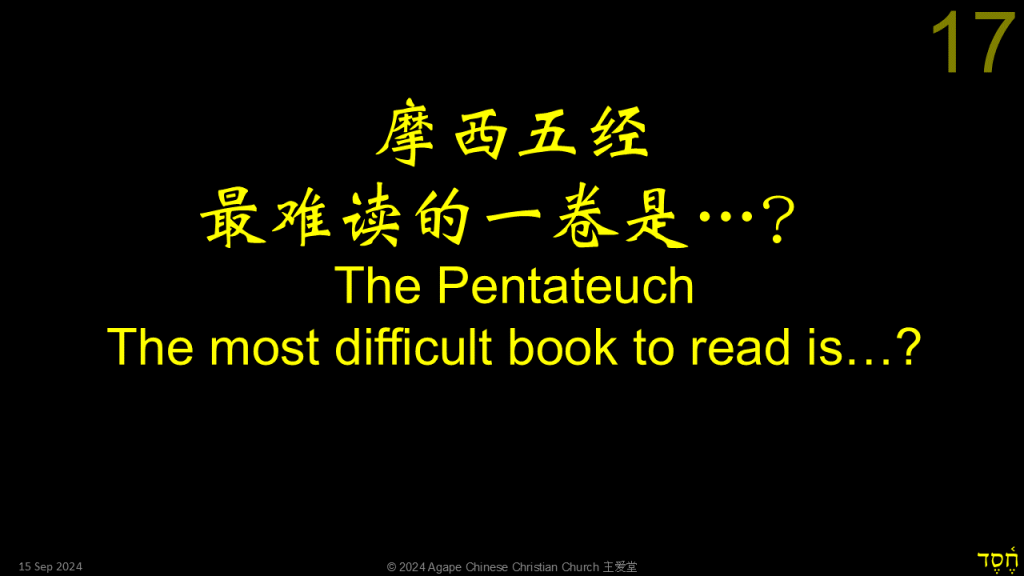
Pentateuch: In case you didn’t know, it’s the 5 books of Moses: Genesis, Exodus, Leviticus, Numbers, Deuteronomy
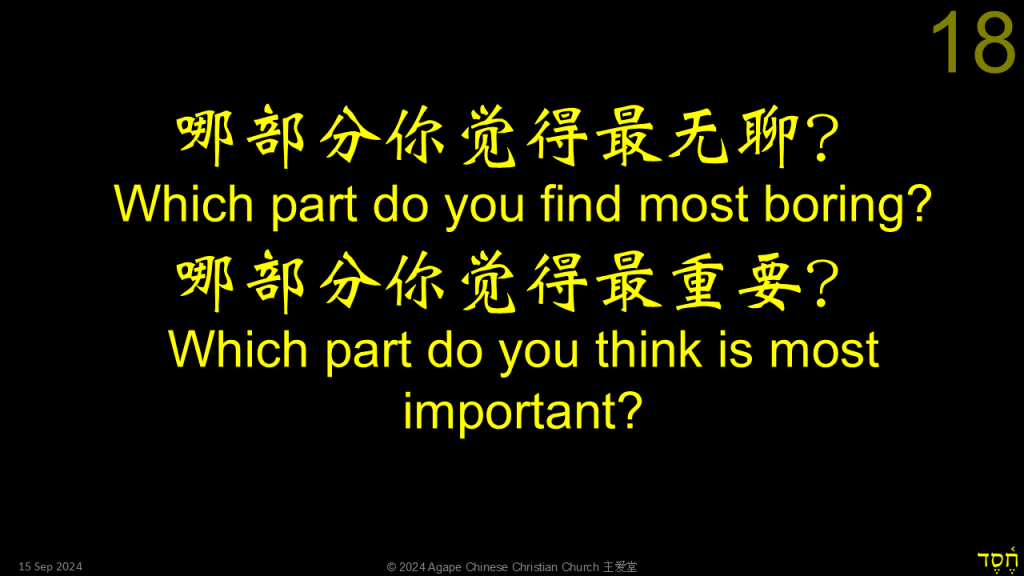
Which part do you think is the most important?
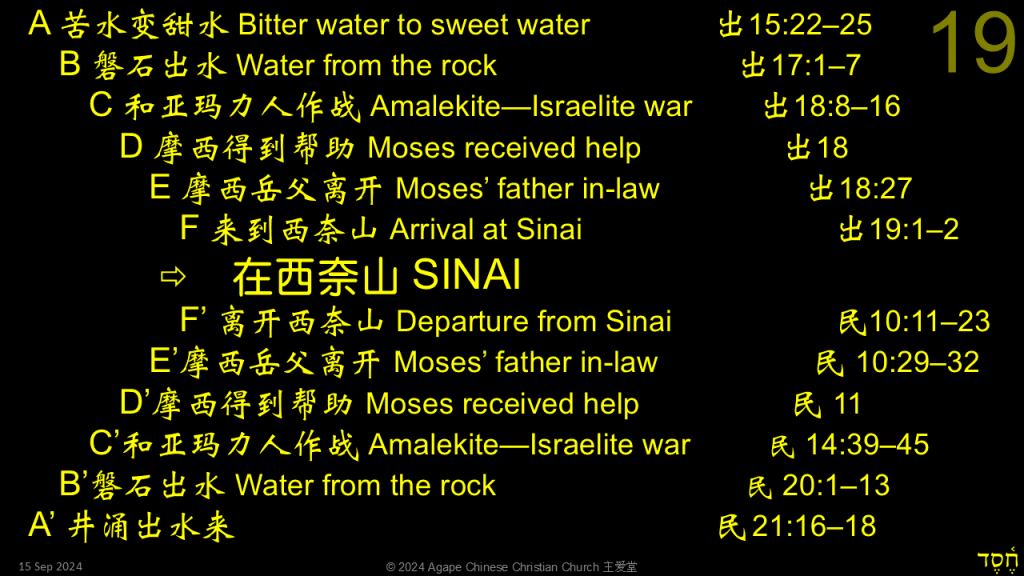
This is a rough outline of Exo 15:22–Num 21:18. Note the large chiastic structure.
So it seems the most important part is right in the middle of the sandwich: At Mount Sinai
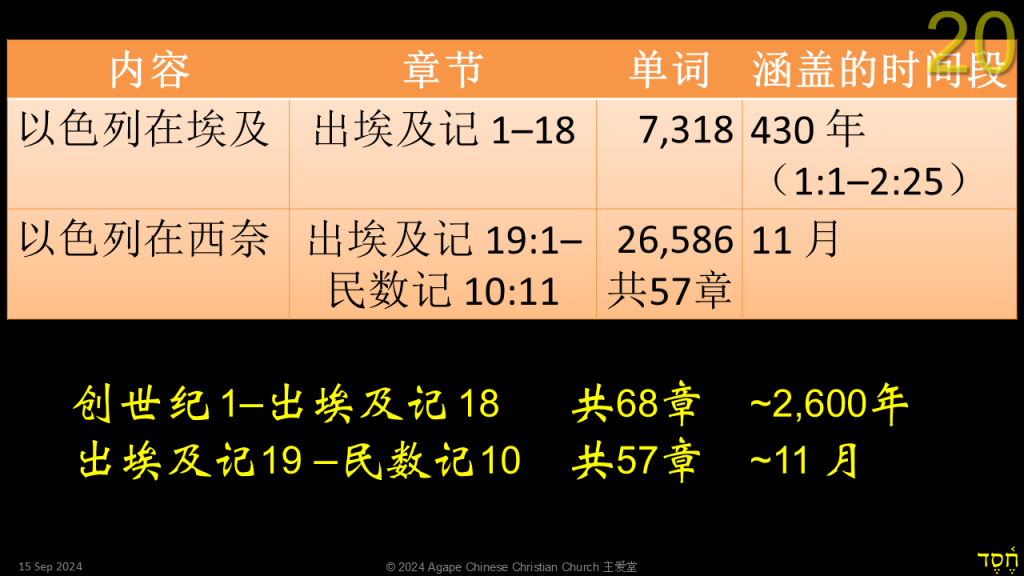
Some stats about how important this middle part is.
They spent only 11 months or so at Mount Sinai, but the Bible spent 57 chapters (26.6K Hebrew words) to describe it.
In contrast, from Gen 1 to Exo 18, covering about 2,600 years, the Bible spent only 68 chapters (only 7.3K Hebrew words) on it.
We’re now entering the centre of the Pentateuch, the most important part.
But many people find that this is also the most boring part!
Passage
Click here for passage in English
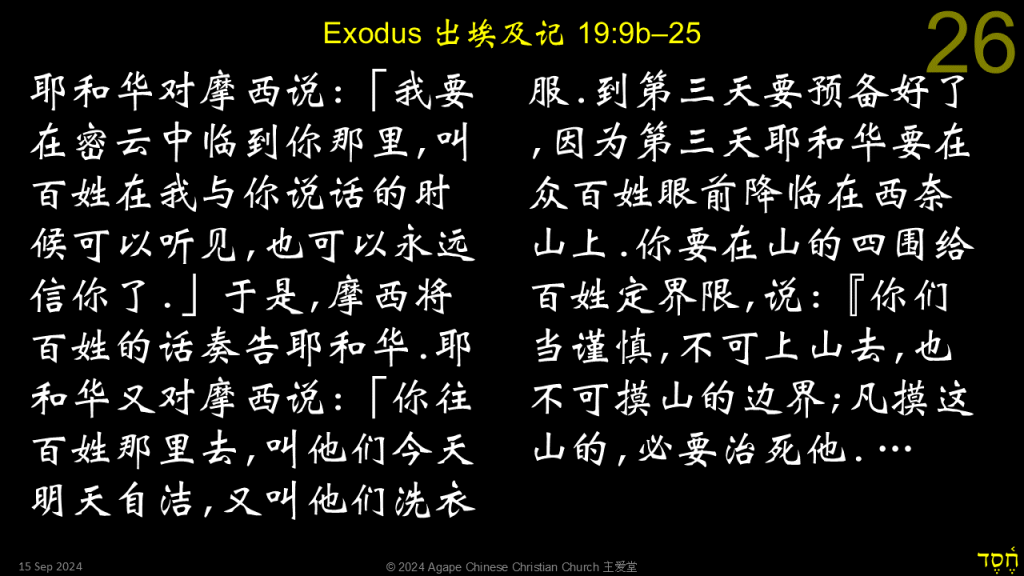
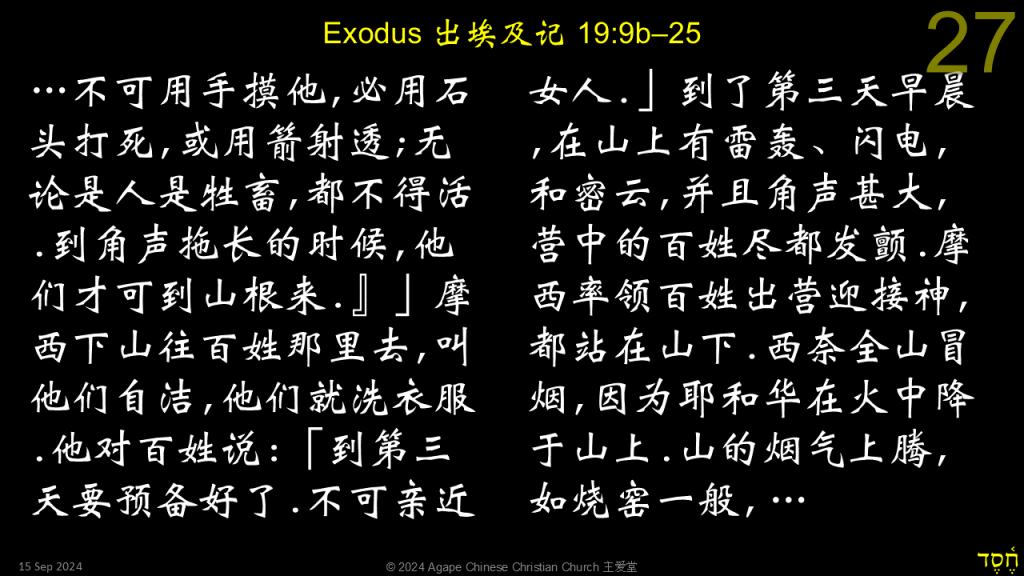
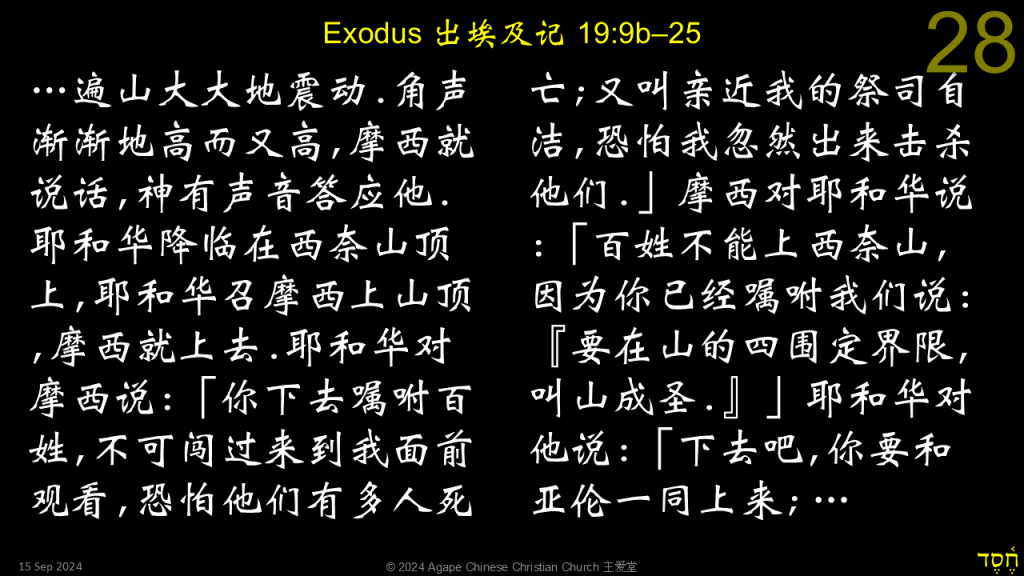
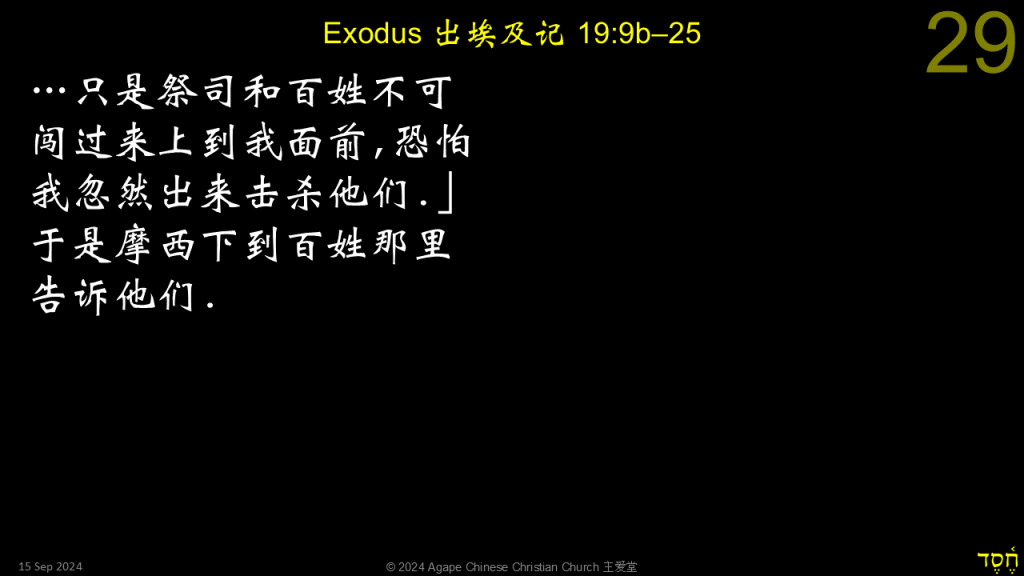
Passage in English
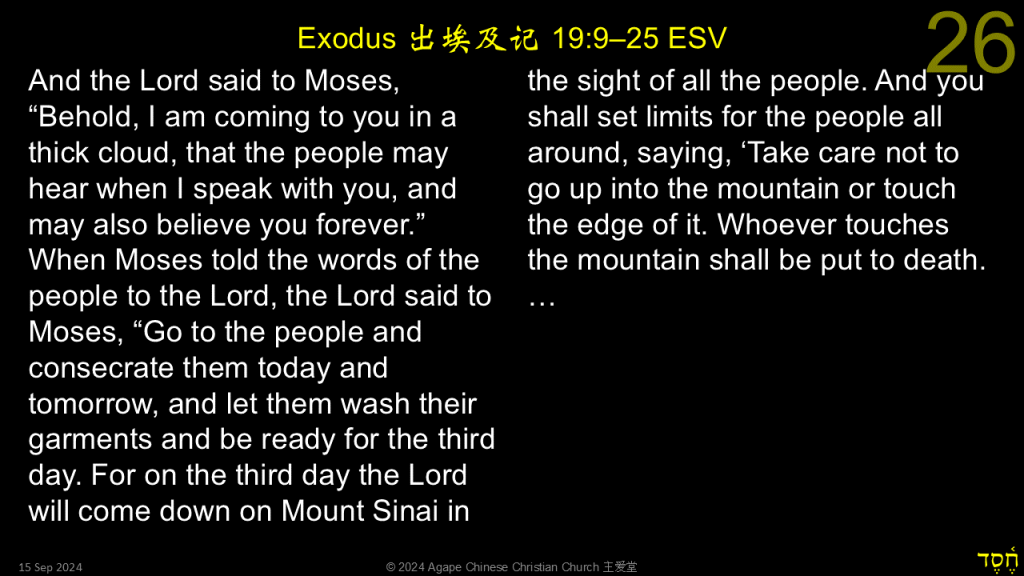
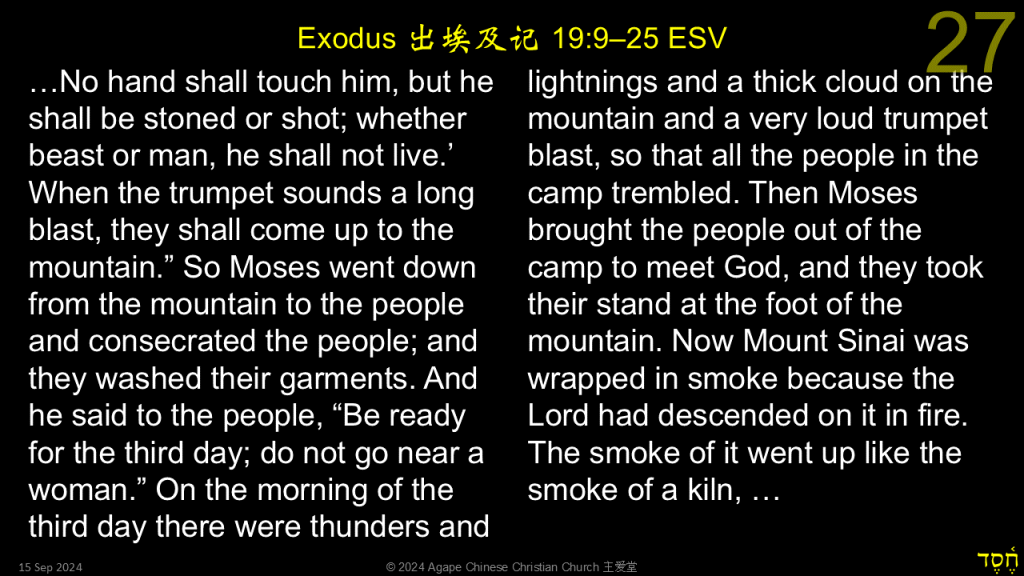
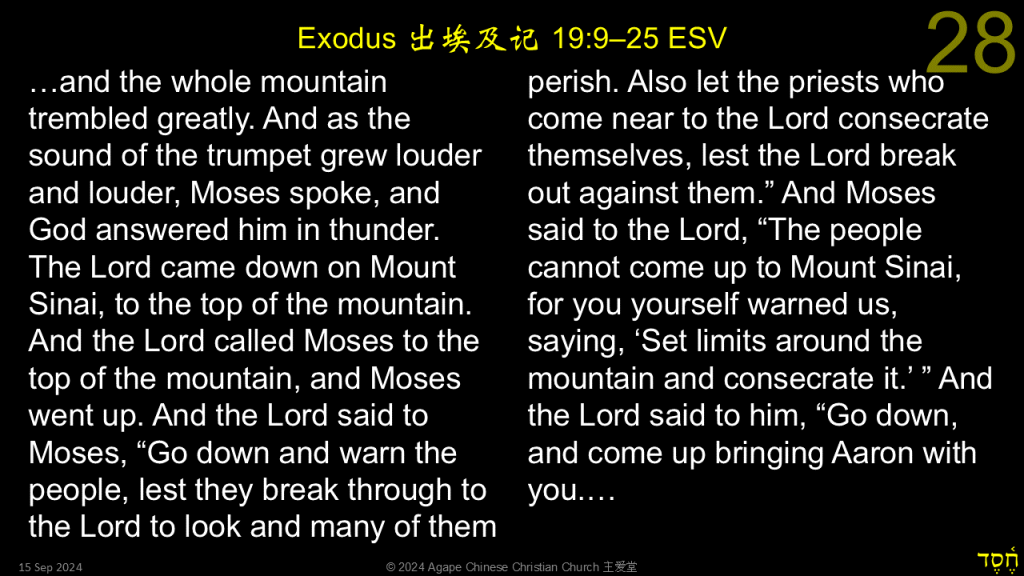
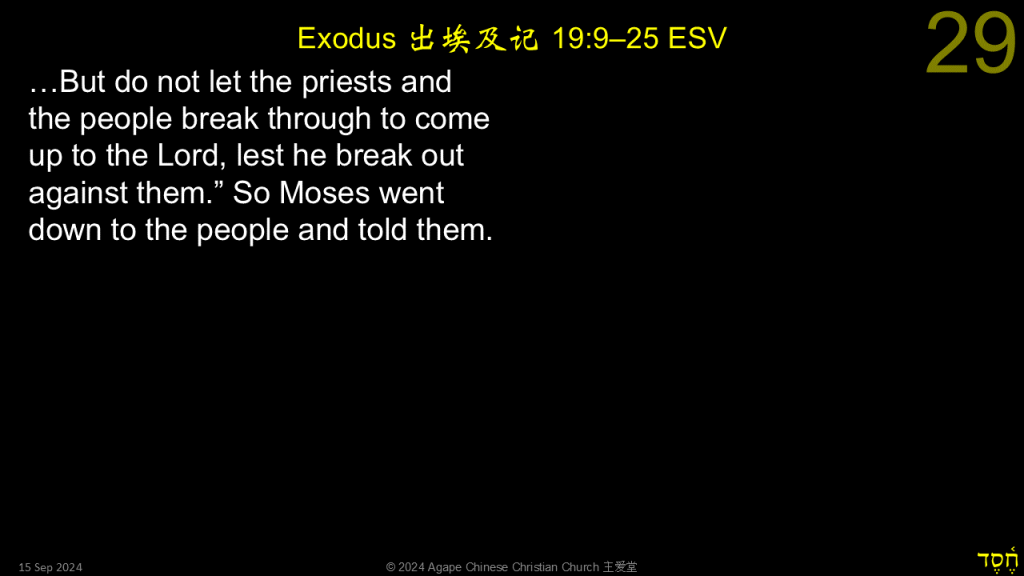
Recap
Lessons from Exo 19:1–8
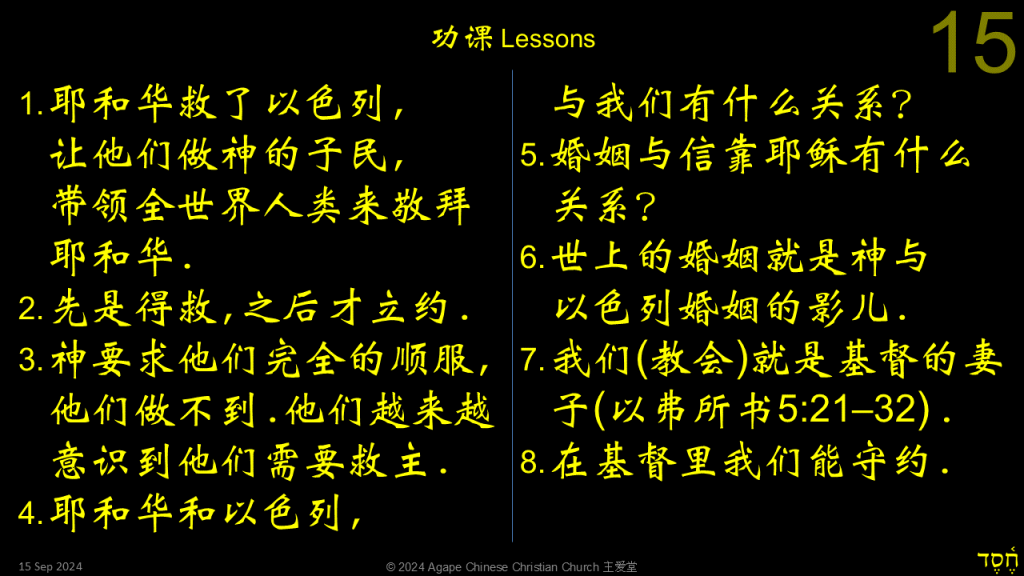
Outline
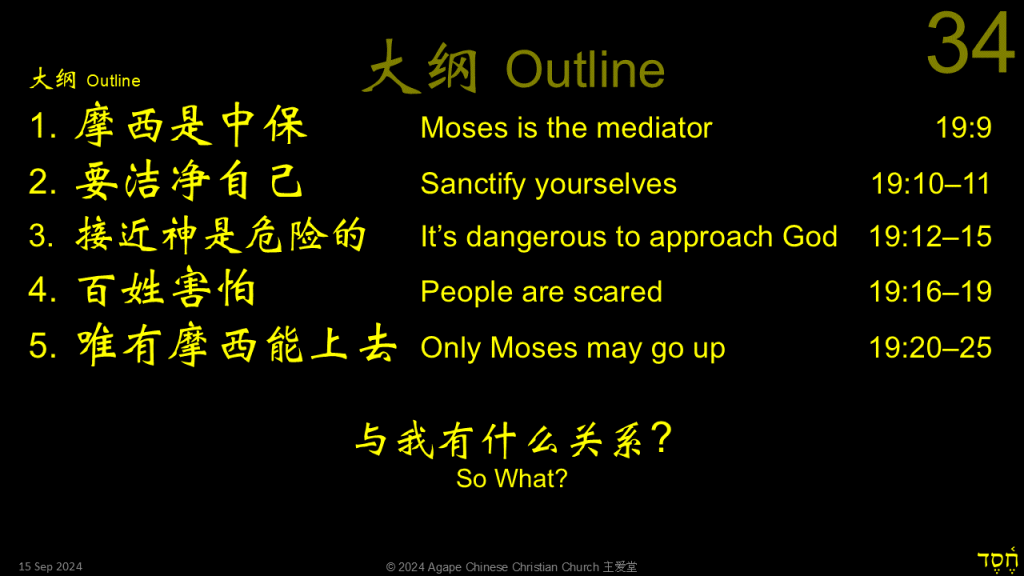
Section 1 摩西是中保 Moses is the mediator 19:9
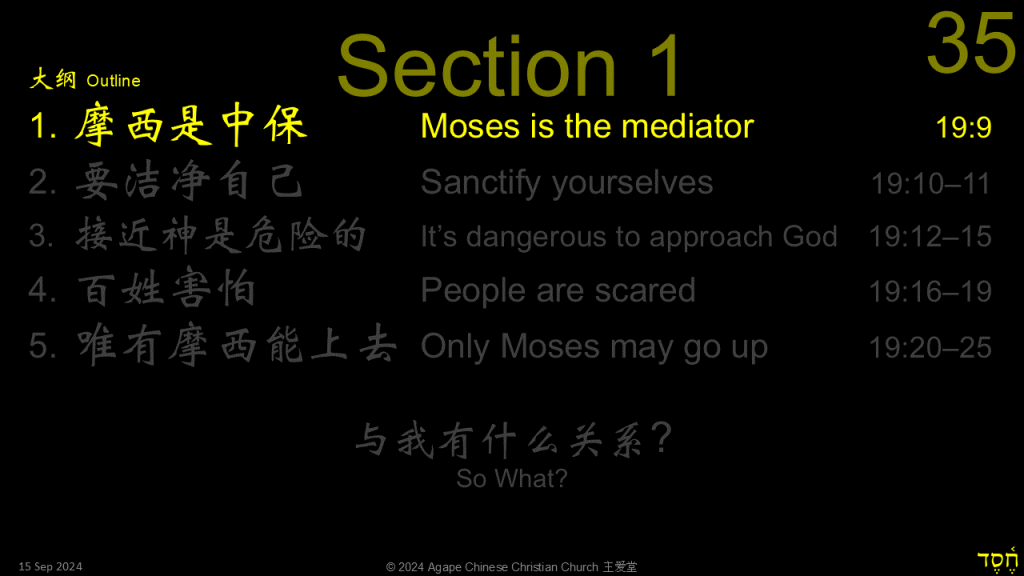
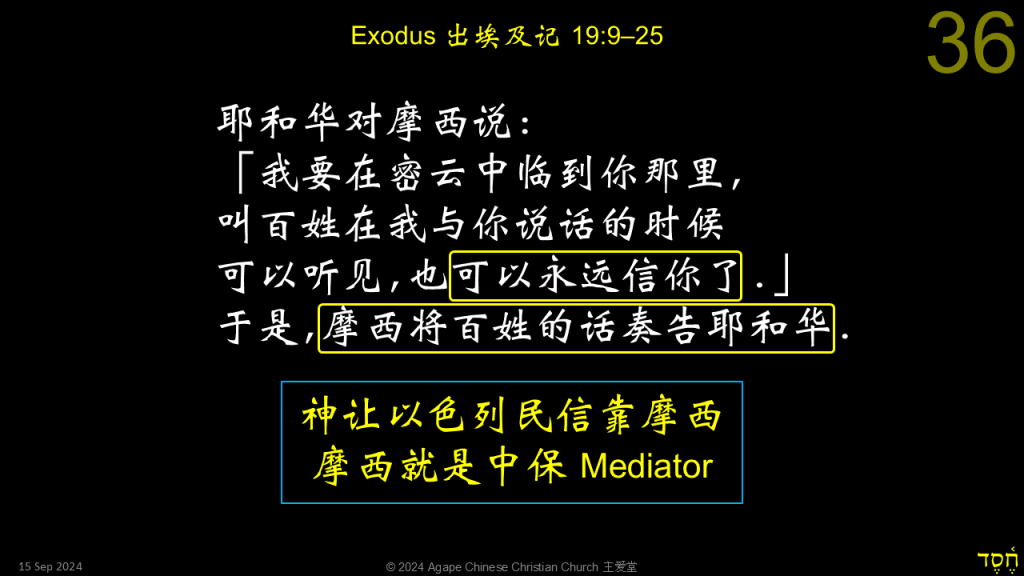
Moses is set up as the mediator, going between YHWH and the people.
So we see him running up and down the mountain, bringing YHWH’s words to the people,
and bringing the people’s response up to YHWH.
Lessons
Section 2 要洁净自己 Sanctify yourselves 19:10–11
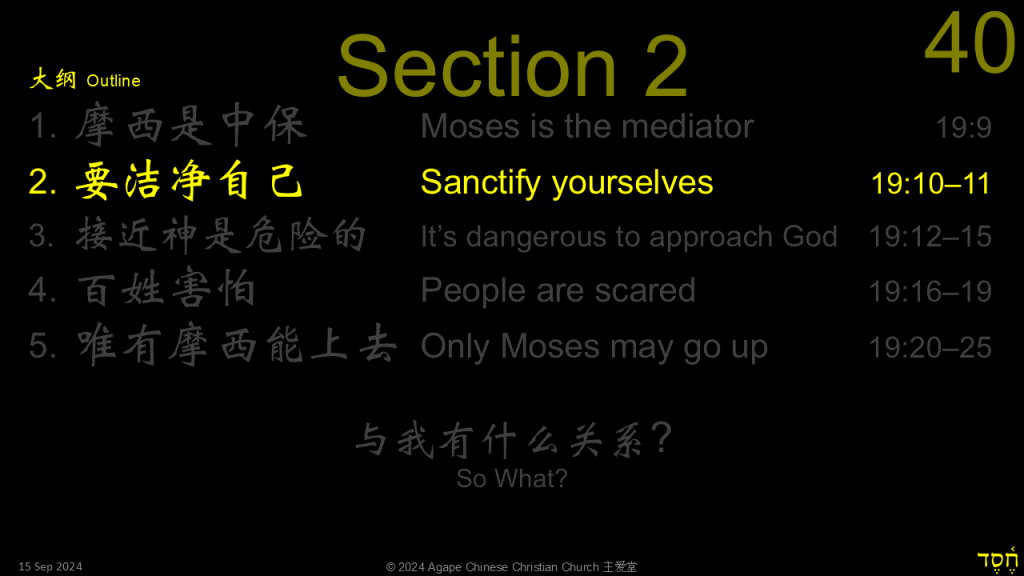
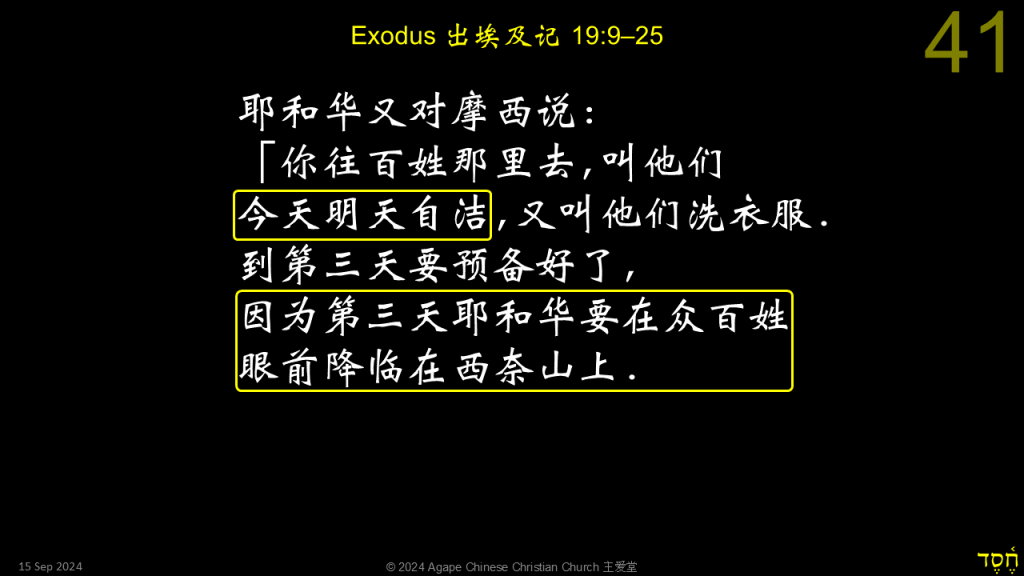
Three days to cleanse themselves, wash everything, etc.
In preparation for what?
On the 3rd day, YHWH will come down on Mount Sinai and be “seen” by the people.
Section 3 接近神是危险的 It’s dangerous to approach God 19:12–15
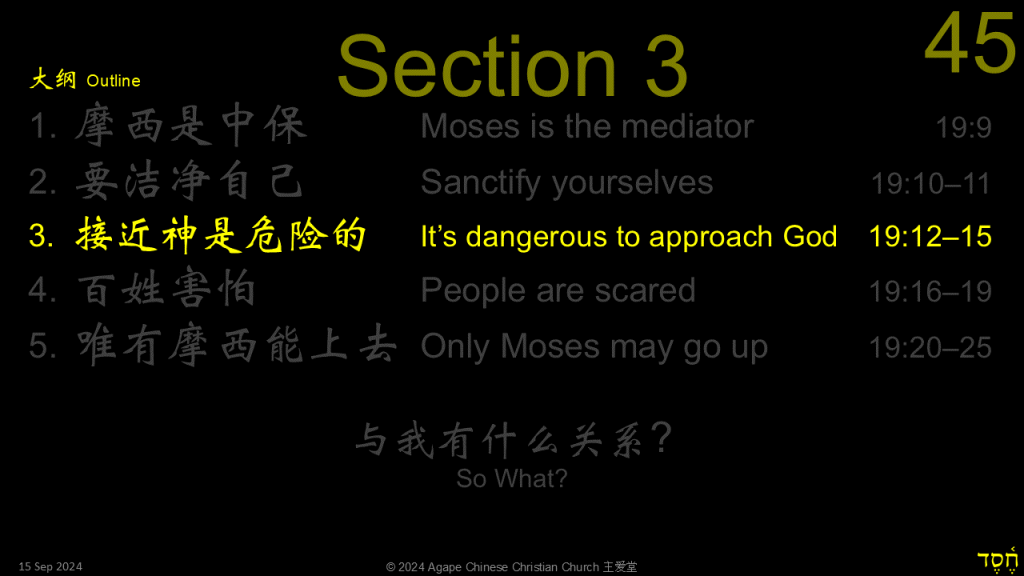
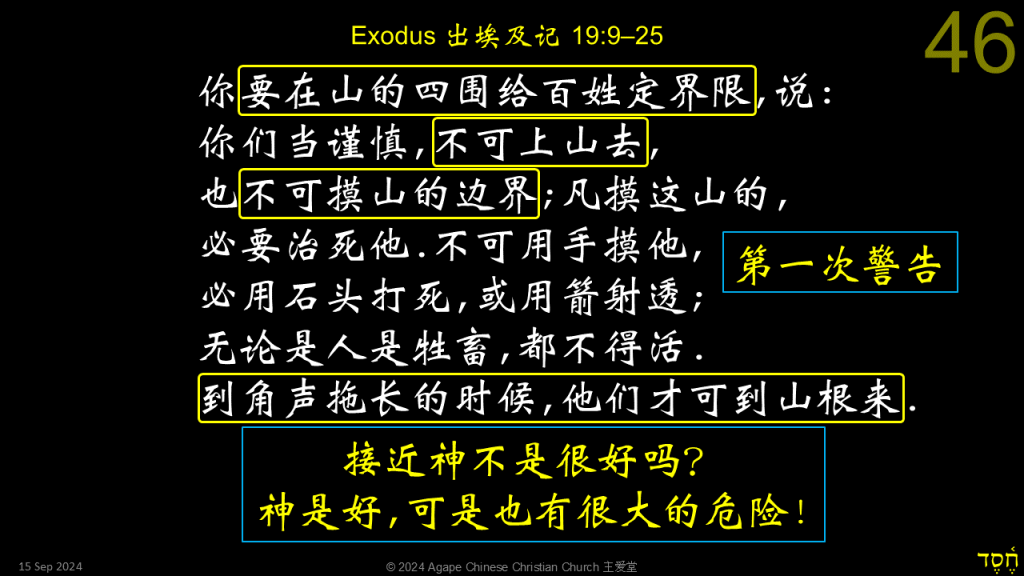
This is 1st of 3 warnings about not coming close to the mountain.
They can only approach when the horn sounds.
Why must they keep away? What’s wrong with wanting to be close to God?
God is good (definitely), but he’s also dangerous.
He is holy, we are not. When unholy life approaches a holy God, that life will die.
This is the whole point of this middle section of the Pentateuch: How unclean beings like us can be with a holy God.
All the rules and regulations (the part that we find most boring) are there to tell us how we can approach God.
They also give us an idea of what a holy God is like.
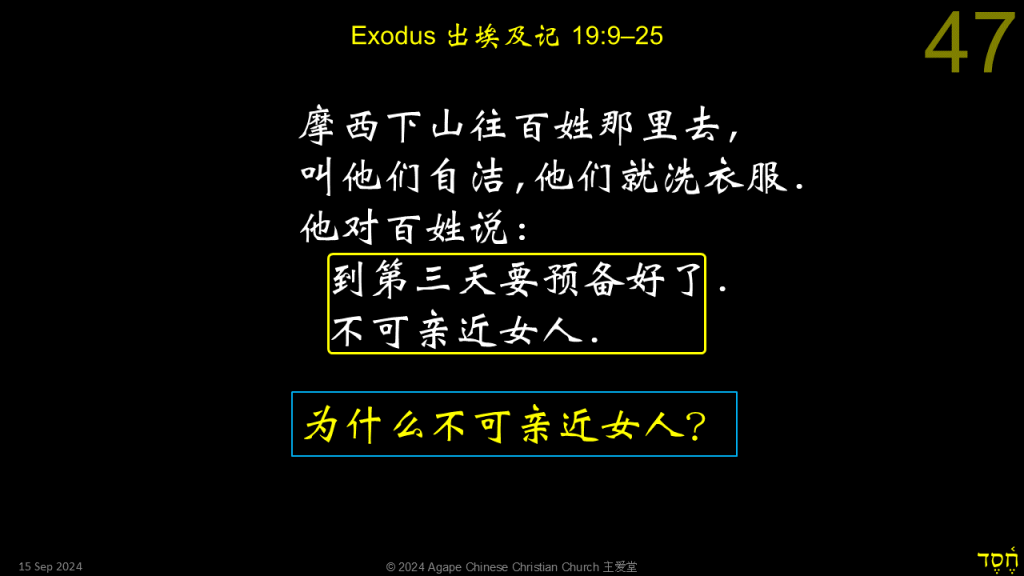
Why can’t they approach women?
This is part of idea of being faithful to YHWH. They devote themselves exclusively to YHWH, so no earthly distractions.
YHWH is setting up the marriage covenant with them, so they are to be exclusively devoted to YHWH,
like a bride that is off limits to everyone else.
Lessons
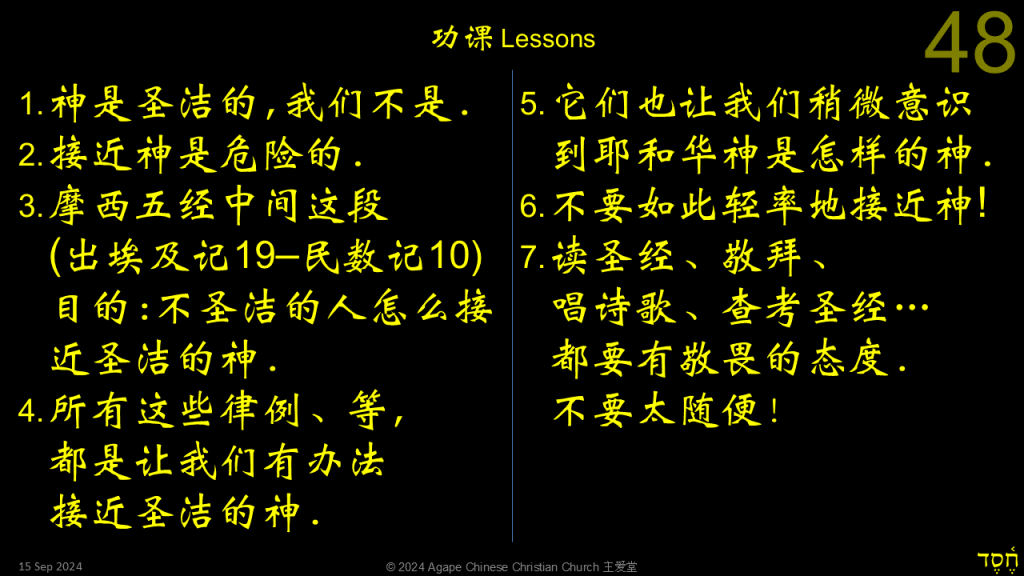
- God is holy, we’re not.
- Approaching God is dangerous.
- The goal of the middle section of the Pentateuch (Exo 19–Num 10):
How can an unclean (as opposed to holy) person approach a holy God. - All the laws, decrees, etc., are telling us how this approach can be done.
- The laws make us realise (a little bit) what kind of God YHWH is.
- Don’t approach YHWH with flippant attitude!
- When we read the Bible, worship, sing hymns, do Bible study, etc.,
we need to have an attitude of respect.
Don’t be too casual!
Section 4 百姓害怕 People are scared 19:16–19
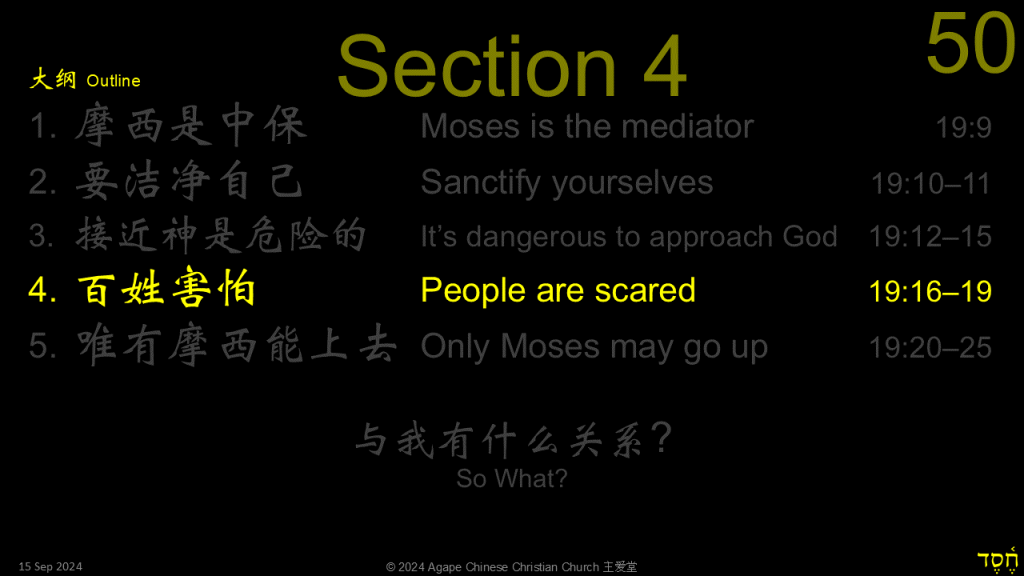
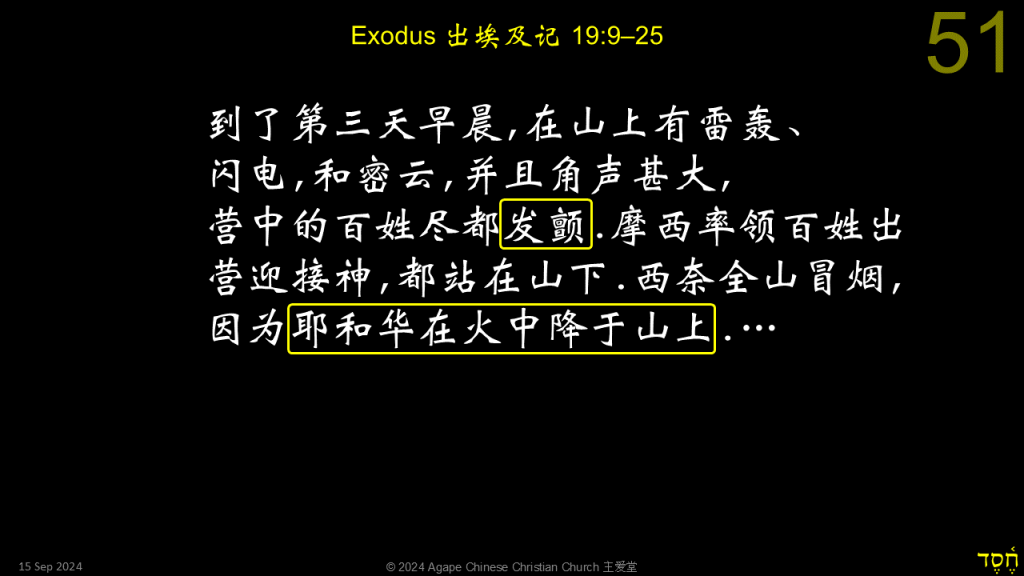
The people were scared, and they should be!
We no longer seem to have a fear and reverence of God.
Notice that YHWH was in the fire, but he must come down. The fire hides him from the people.
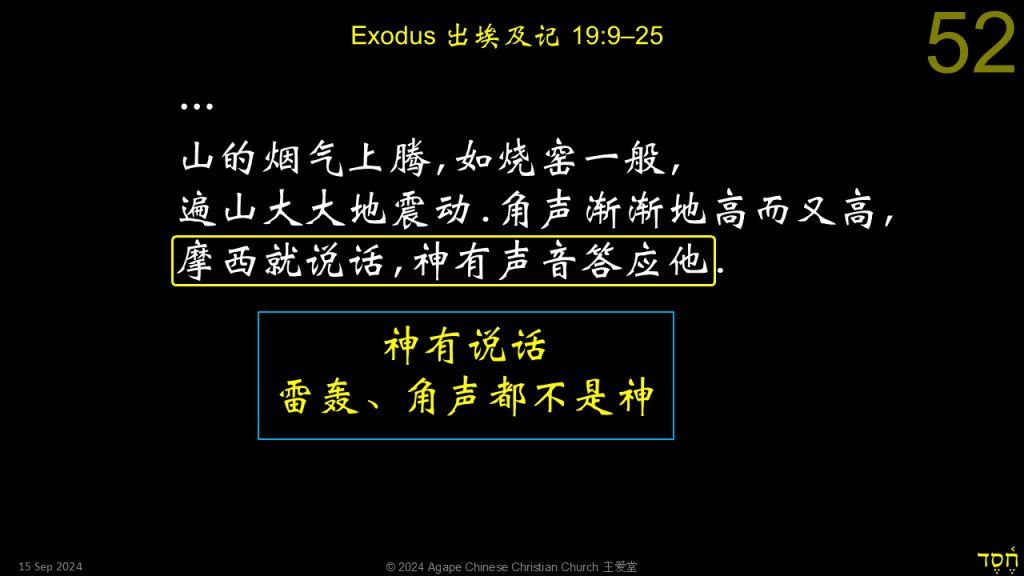
YHWH speaks (like normal human speech). All the thunder, sound of horns, etc., are not YHWH.
This is against Canaanite beliefs where they see such things as their gods.
The Bible makes it very clear that YHWH is separate.
Section 5 唯有摩西能上去 Only Moses may go up 19:20–25
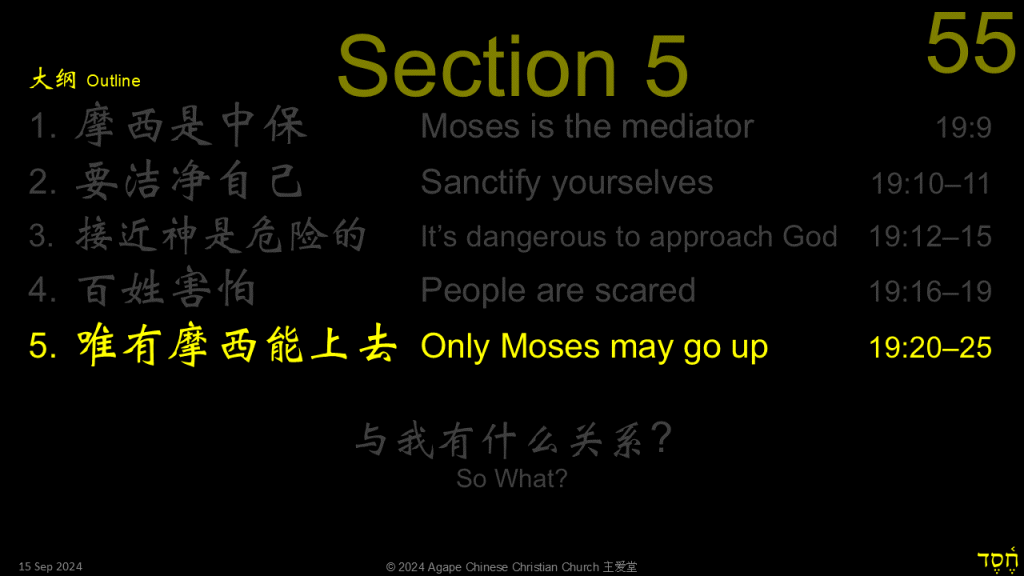
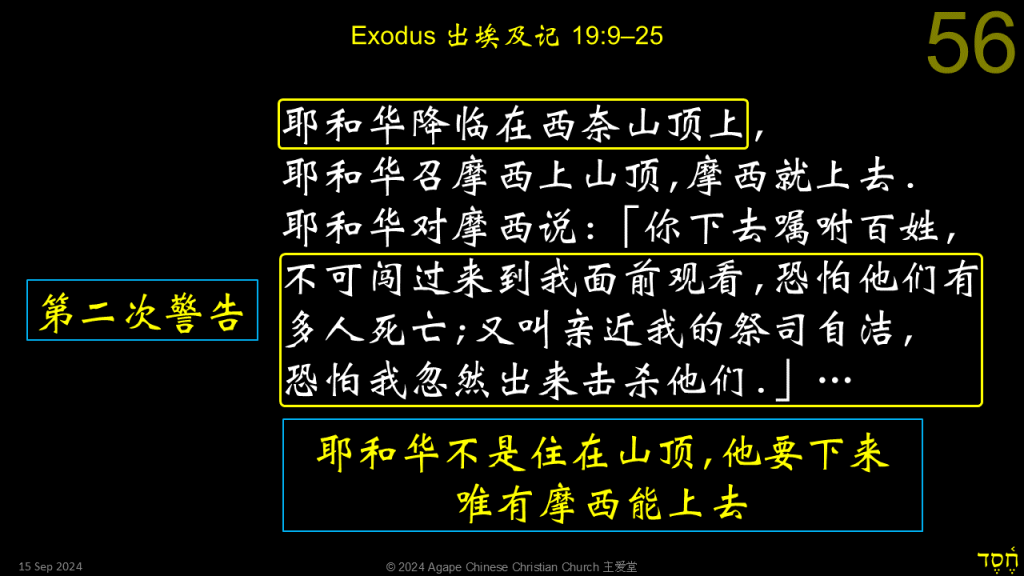
The 2nd time that YHWH warned them about not approaching the mountain.
Again, the emphasis that YHWH doesn’t live on the mountain; he must come down to meet with Moses.
Only Moses can go up, everyone else must remain below.
Moses is the mediator.
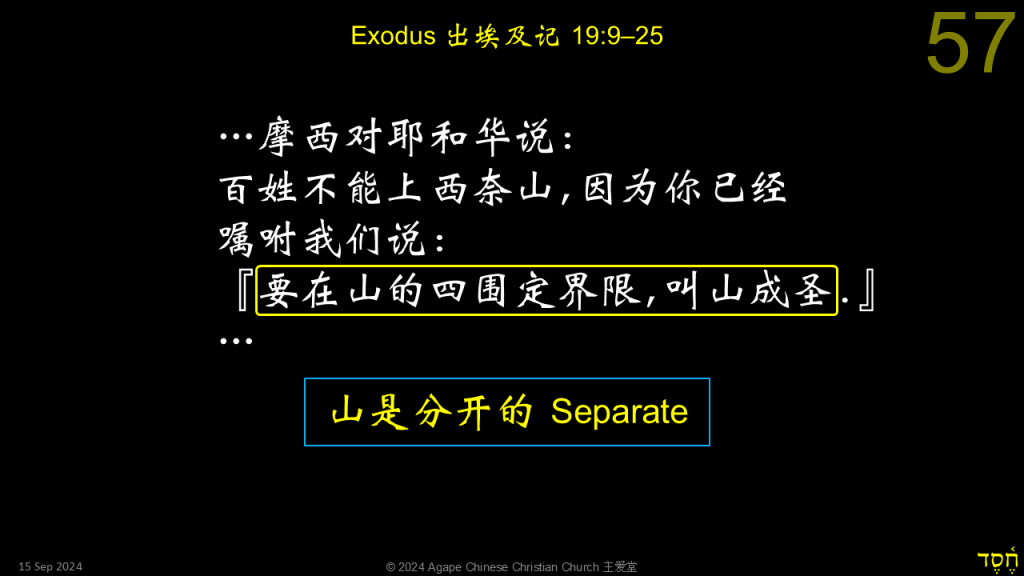
The mountain is separate (holy) ground, not because of anything in and of itself, but because YHWH chose to descend on it.
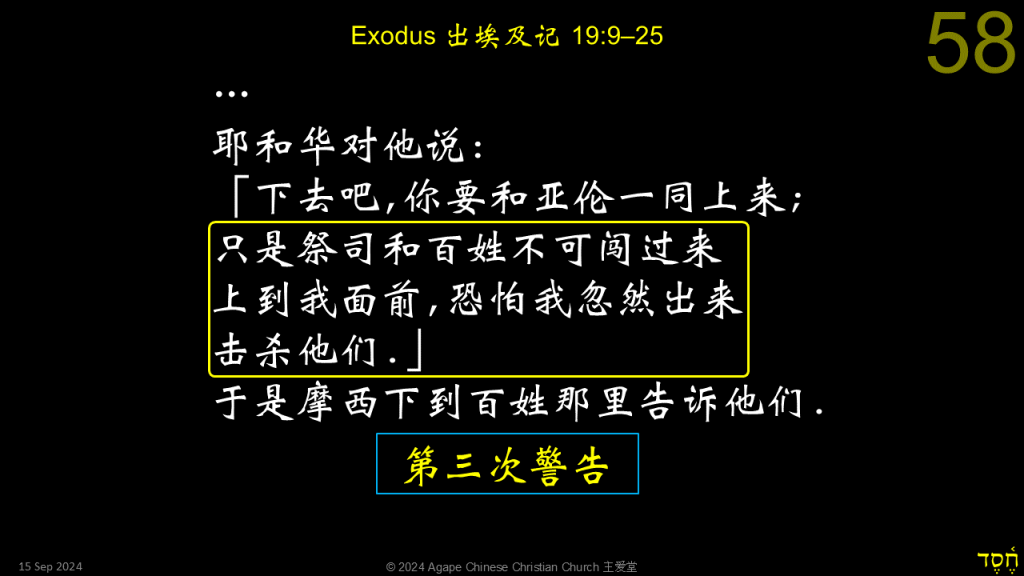
The 3rd time the warning is given. Three times: stresses its importance.
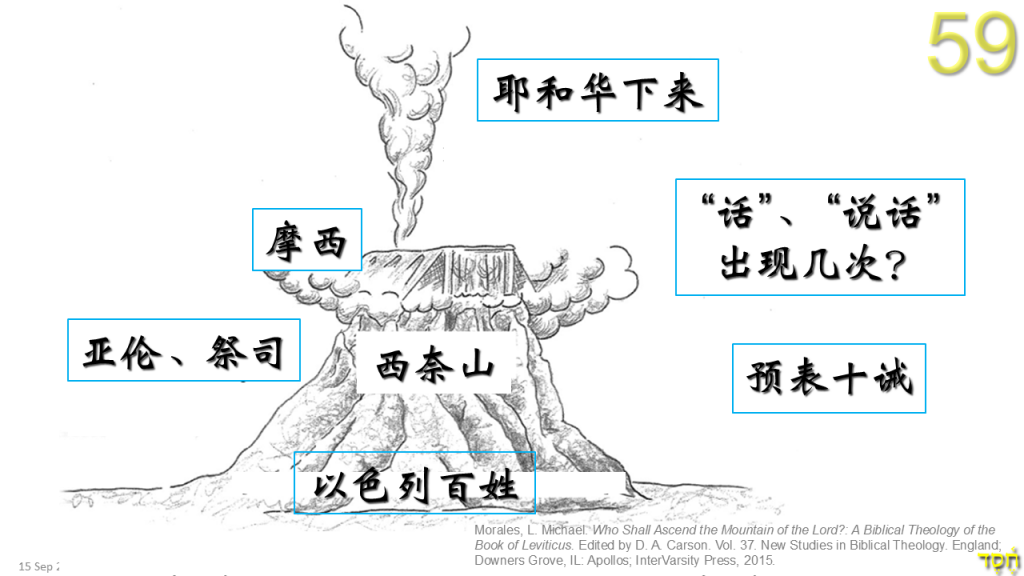
Picture is from: Morales, L. Michael. Who Shall Ascend the Mountain of the Lord?: A Biblical Theology of the Book of Leviticus. Edited by D. A. Carson. Vol. 37. New Studies in Biblical Theology. England; Downers Grove, IL: Apollos; InterVarsity Press, 2015.
The drawing is a representation of Sinai, and the location of various groups of people.
At the bottom of the mountain are the people, they can’t approach any closer.
Halfway up are Aaron and the priests (we’ll see more of this later).
At the top of the mountain is Moses, only he can go all the way to the top to meet with God.
God descends onto the mountain (he doesn’t live there).
What does this 3-part separation remind you of?
Note also “word,” and the verb “to speak” occurs 10x in Exo 19–20:1. What does this signify?
与我有什么关系? So What?
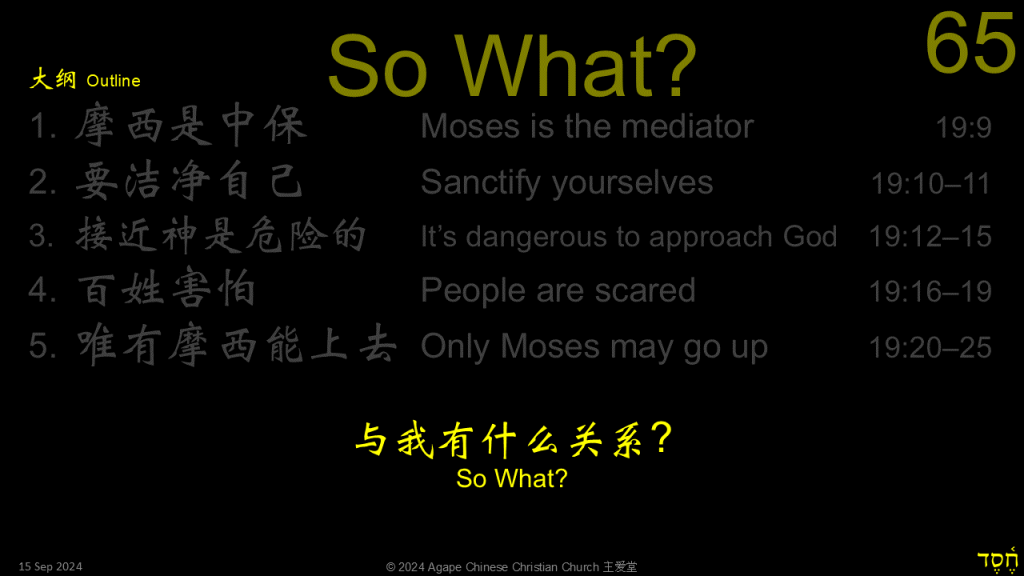
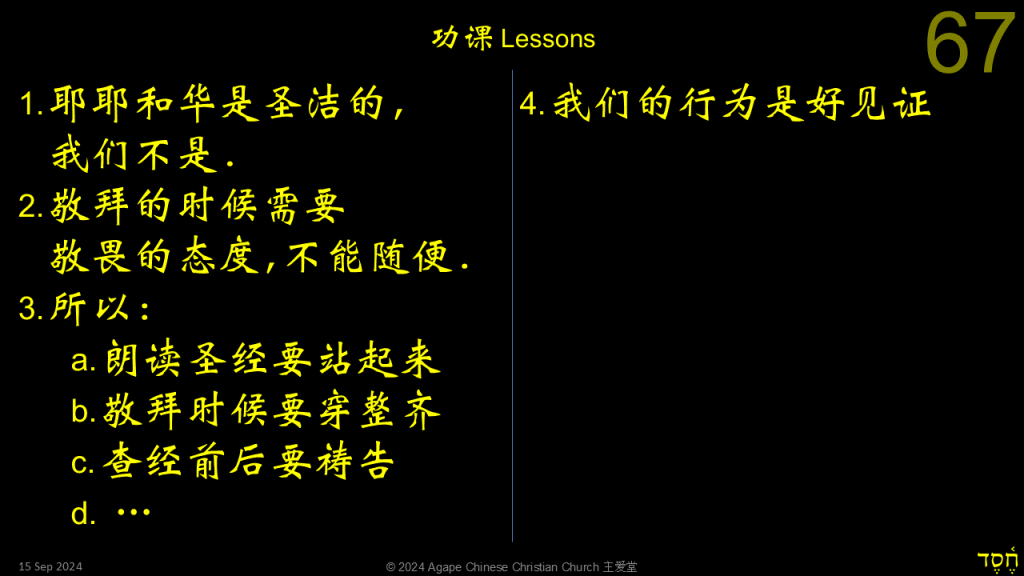
- YHWH is holy, we are not!
- When we worship, we need to have the proper awe and respect.
- That’s why:
- When we read the Bible aloud together, we stand up
- When we worship, we dress properly
- We pray before and after Bible study
- Etc.
- Our behaviour are good testimonies for God.

